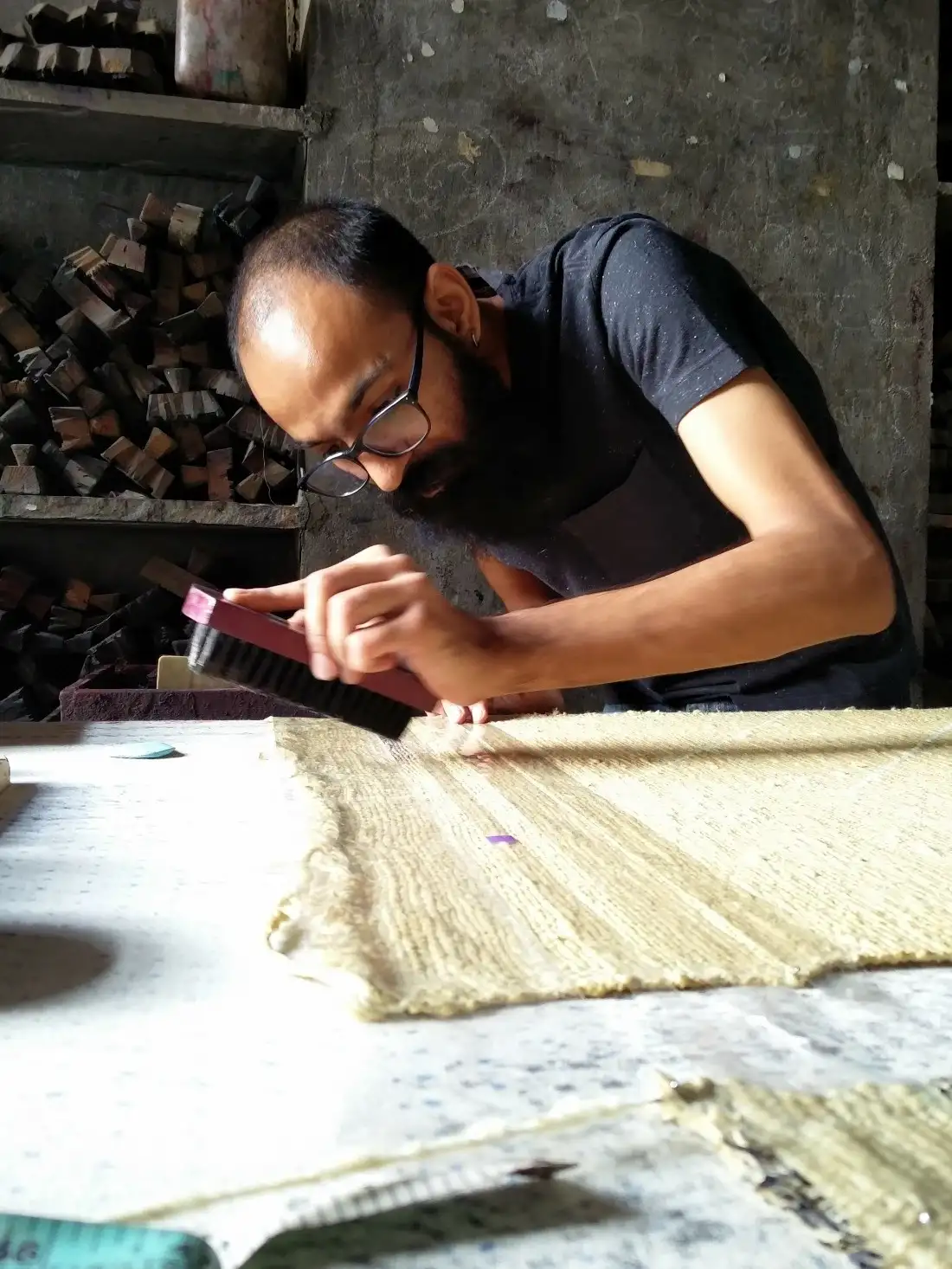
For co-founders Vinayak Sharma and Rameshwari Kaul — their love for fabric was homespun, just like the inspiration rooted in their childhood; while one spun the wheels, the other dreamt of it.
Before Cotton Rack, one of the fondest memories Vinayak recounts is of jhor that takes him back to his village. Soon enough he is engulfed with the smell of freshly made gur wafting in the air, and the drones of bells from the nearby temple. Seated in groups, he remembers this jhor being framed by the village weavers spinning colourful yarn in their charkas. Sharing a similar story was Rameshwari’s childhood dream — one where she would imagine herself dressed in khadi riding in a village with her cloth bag dangling on her shoulder. These long cherished longings had urged the duo to consider Khadi as a potential business enterprise. In 2013, Vinayak Sharma and Rameshwari Kaul left their lucrative jobs in Colour Plus and Fab India respectively, to collectively create a venture of their own.

Once decided upon this fresh start, heading homewards came naturally to Vinayak. Growing up in Rajasthan, he affectionately recalls how the art of weaving was a ubiquitous part of his childhood. Amused at the constant sight of him spinning the charka, Vinayak’s grandparents were the first to urge the 10 year-old, to encourage him into weaving. They returned to Jaipur for the lifestyle brand in-making, and a rush of these memories directed them to khadi. Their rudimentary research revealed that the textile industry in India was saturated by an eclectic mix of loud prints and colours, but what remained missing was simplicity.
It was this realisation, that paved the way for the creation of Cotton Rack — a premium clothing brand working solely with Khadi. From the very beginning, their designs boasted simplicity and elegance, a duet seldom found interplayed in the fabrics of India. Thus it wasn’t a surprise when they were sold out within the first two hours of the collection going live on October 2nd, 2014.
The journey was nowhere as linear as the story might imply. However, the bumps and pits on the way ensured that success, when it came knocking, was sweeter. One of the unused bedrooms in their parents’ house was revamped into their working studio. Settling down to work, Rameshwari designed a few pieces and before approaching the nearby Khadi stores for the material. Realising that the quality of the readily available material was not commendable, she reached out to her contacts from Fab India to find better sourcing.
Cotton Rack’s search for source was long and tiresome! Sorting out the raw material took them almost two years. Their journey for weavers had them on their feet, only to halt at the banks of Hooghly, with the travel money borrowed from a Delhi-based investor. West Bengal witnessed them working alongside the weavers, who had initially reached out to them. Decisions like these spun not just khadi but bonds that transcended time, surviving the years to follow. Currently, Cotton Rack works and weaves with ten different fabrics. Half of these are stitched by in-house weavers, several from homes in West Bengal, while the Cashmere Cotton is sourced from Jammu & Kashmir directly. Their source in J&K is the only one in the country that currently weaves cashmere cotton, and sells them exclusively.

Vinayak, while not a fan of the buzzword sustainability, was a visionary. One that understood the importance of creating responsible fashion, quite early in his career. He continues to encourage his weavers to know the market and ask for fair prices, and ensures from his end that they are paid on time. ‘Nobody was talking about sustainability, eco-friendliness, or ethical practices when we started,’ Vinayak elaborates in his interview with CIIE.CO. Vinayak and Rameshwari did not begin with preset expectations to create a sustainable and eco-friendly brand; it happened to them, with the choice of process. Since Cotton Rack only uses handwoven fabrics, they began by using organic natural fabric, which continues to be versatile and environmentally sound and does not involve cruelty to animals. Sustainability, they believe, was a by-product of going back to the roots.
For those entrepreneurs who aspire to break into this segment and to the investors busy exploring the industry, Cotton Rack reveals its well kept wisdom– educate yourself about the handicraft sector! Understand the work of the weavers behind the price tags. It will clarify why certain products come at a premium price, and to bargain — is to be unfair to the weeks of hard work that the weavers invested in creating the clothing you so admire. True to its words, Cotton Rack has currently teamed up with others from their industry to educate the customers, with plans to hold sessions to sensitise the masses towards the work of artisans, and generate more investment, in future.
